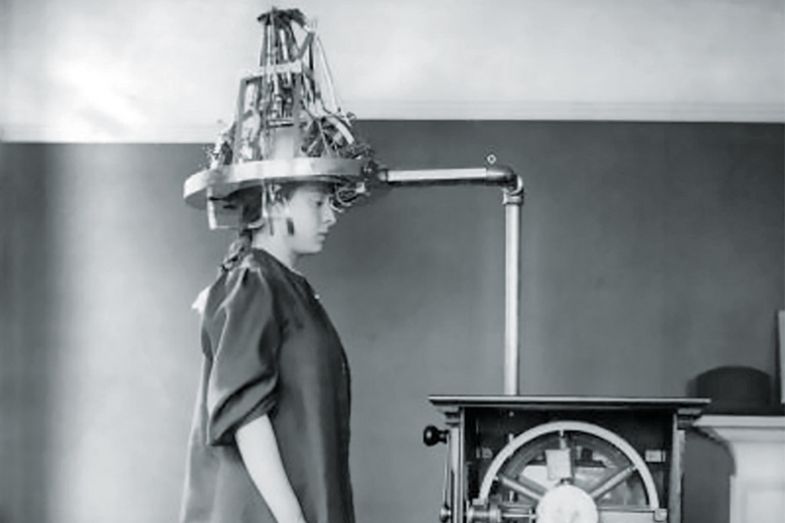Men and the black holes in their memories
Re the article “The ‘gender gap in citations’: how female authors lose out” (News, 16 August). The “gender citation gap” might be better described as “men’s blind spot”.
In 2007, I undertook a survey about what science fiction readers recalled of their childhood reading. It emerged that if you asked people “who do you remember reading?” men just did not cite female authors. If you asked them to check off which of a list of authors they had read, they recalled female writers and ticked their names.
After that, I started monitoring male science fiction authors who were interviewed on the radio; again and again, they “forgot” female authors, historians and critics. And this in a field where our popularly accepted “founder” is Mary Shelley. I now remind male friends before they join convention panels or recommend guests for outside agencies or media interviews: make a list of relevant female writers before you start, because you will forget.
Farah Mendlesohn
Stoke-on-Trent
Master’s matters
I read with interest the article on the increase in postgraduate fees in the UK (“Postgraduate fees survey 2018”, News, 16 August), and I would like to add a further point after highlighting a few facts. First, the MBA may have the highest fees, but the course is no longer the dominant postgraduate taught course in the UK (and has not been for a while). Second, when considering Brexit’s impact, it is important to note that figures from the Higher Education Statistics Agency show that European Union participation has since 1994 comprised between 7 per cent and 9 per cent of the UK’s PGT student body. Last, although the master’s degree course is 12 months long, the dissertation takes up a substantive amount of this time, with reduced staff and class contact time.
The introduction of £10,000 loans in 2016 to cover fees and living costs came after the Higher Education Funding Council for England’s Postgraduate Support Scheme (phase one in 2013 and phase two in 2015), which explored ways to create sustainability in the PGT market and halt the dramatic decline in PGT UK-domiciled and part-time participation that had occurred between 2011 and 2016.
The Postgraduate Experience Project that I led was the largest consortium in the first phase. PEP’s extensive research contributed to the discussion and made numerous recommendations. They included validating modules instead of courses to encourage continuing professional development via part-time study, and the introduction of a transparent differential fee structure based on delivery costs. These recommendations could assist PGT participation in subjects that have suffered dramatic decline, such as those in the arts, humanities and social sciences, and also ensure that lab-based subjects, unlike at undergraduate level, rightly contribute more.
Almost as soon as the £10,000 PGT loan scheme was announced in late 2014, some institutions immediately raised their fees to the maximum loan level for 2016‑17. The 2018 survey shows that many institutions are starting to differentiate between non-lab and lab courses, but unfortunately this has not stopped the creeping rise in fee levels for the non-lab courses. Neither has there been a concerted effort to increase part-time provision across the sector to support CPD. The full-time course is literally still the master.
The increase in fees without an increase in loan availability to cover fees and living costs is counterproductive in the long term and is likely to lead to yet another decrease in participation. But merely raising the amount a student can borrow to cover all associated study costs is not the answer. We need to be more creative in the provision and delivery of PGT study.
Michelle Morgan
Associate dean, student experience
Associate professor
Bournemouth University

Head scratcher
I am uncertain as to whether the archive photograph (left) selected to illustrate the article “Pearson turns AI attention to essay marking” (News, 9 August) is of a philosophy department’s Humean causality testing machine: turn the handle to raise or lower the headset; a psychology department’s ESP apparatus: make the wheel move by willpower alone; a psychiatry department’s Reichian orgone energy accumulator: just stand there and hope for the best; or simply a device to dry rapidly the hair of the female subject.
Perhaps Times Higher Education or a reader could kindly offer clarification.
R. E. Rawles
Honorary research fellow in psychology
UCL
Register to continue
Why register?
- Registration is free and only takes a moment
- Once registered, you can read 3 articles a month
- Sign up for our newsletter
Subscribe
Or subscribe for unlimited access to:
- Unlimited access to news, views, insights & reviews
- Digital editions
- Digital access to THE’s university and college rankings analysis
Already registered or a current subscriber? Login